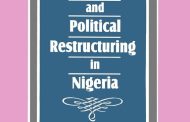Living up to its image as a normative power, the European Union (EU) has voted against a military approach to the resolution of the Niger Delta crisis to the detriment of alternative options, a position similar to what the British have said much, much earlier. The EU is harping on what Ambassador Michel Arrion, its head in Nigeria, calls a multi-pronged approach that looks at the crisis in its global context.
Arrion told Senator Victor Ndoma-Egba, the Executive Chairman of the Niger Delta Development Commission, (NDDC) during a visit at the weekend in Abuja that the EU is very much available to work with the Federal Government of Nigeria towards a guarantee of securing European investment in the Niger Delta. That possibility is, in Arrion’s view, not achievable if the infrastructural and security requirements are not there.
Taking a broader view beyond crime and punishment, the ambassador prioritised another look at the question of Niger Delta master plan and how the international community could play own role in its accomplishment. The ambassador learnt from his host that there is a 15 year Master Plan for the Niger Delta but which is 10 – years old now without much done. The question to be resolved, according to Ndoma – Egba, is whether to draw up a new plan or re-work the subsisting one which has no relationship with the annual budgetary allocation to the annual budget of the Niger Delta.
The idea of confronting conflicts using a combination of political, economic and military approaches rhymes with the EU’s emphasis on power based on norms, ideas and identities more than on military muscle. How applicable that would work in the dialogue of the deaf between contenders for power in Nigeria in the management of the Niger Delta is what remains to be seen.



























